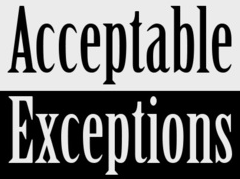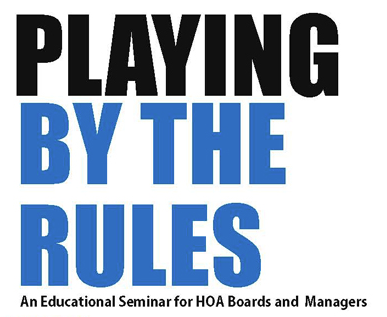By David Swedelson, Partner, SwedelsonGottlieb, Community Association Attorneys
 The Los Angeles Times reports that the Los Angeles City Council is considering an increase in the number of cats that a Los Angeles City resident can own. Seriously? We are often called upon to deal with condo residents that have way too many cats in their units and are unable to properly care for them or their unit. As a result, neighbors complain of odors coming from these units. Not a healthy situation.
The Los Angeles Times reports that the Los Angeles City Council is considering an increase in the number of cats that a Los Angeles City resident can own. Seriously? We are often called upon to deal with condo residents that have way too many cats in their units and are unable to properly care for them or their unit. As a result, neighbors complain of odors coming from these units. Not a healthy situation.
According to the article, the goal of the proposed rule change is not to encourage cat hoarding, but to save felines. “We want to give loving community members an opportunity to become part of the solution by adopting and/or fostering altered shelter cats in their homes,” said Brenda Barnette, General Manager, Los Angeles Animal Services. The article indicates that the city is seeking to increase the number of cats that one may own from three to five. The article also acknowledges that enforcement has been lax. I do not see this helping community associations.
 HOA Law Blog
HOA Law Blog




 A manager at a planned development community association we represent contacted me regarding a dispute with an owner. The board was refusing to allow the owner to make a change to the common area solely because the owner had made a change without first submitting a plan and obtaining the required prior approval. I was informed that the board was refusing to provide approval as punishment for the owners’ actions. And the board was doing this despite the fact that the owner had come to them with two options that would have minimal impact on the common area and/or the aesthetics of the association, and the cost for the owner to bring the property back to its prior conditions would have been very expensive. The owner was not happy, and there were some rumblings of a lawsuit. I had to tell the manager and the board that their approach was not appropriate and that there was a possibility that the association could lose if a lawsuit were to be filed.
A manager at a planned development community association we represent contacted me regarding a dispute with an owner. The board was refusing to allow the owner to make a change to the common area solely because the owner had made a change without first submitting a plan and obtaining the required prior approval. I was informed that the board was refusing to provide approval as punishment for the owners’ actions. And the board was doing this despite the fact that the owner had come to them with two options that would have minimal impact on the common area and/or the aesthetics of the association, and the cost for the owner to bring the property back to its prior conditions would have been very expensive. The owner was not happy, and there were some rumblings of a lawsuit. I had to tell the manager and the board that their approach was not appropriate and that there was a possibility that the association could lose if a lawsuit were to be filed.

 I was alerted to a proposed smoking ban in apartments and condominiums by the City Council in Culver City, California.
I was alerted to a proposed smoking ban in apartments and condominiums by the City Council in Culver City, California.  We often get calls from Board members and managers asking us to help them with noise problems. Usually, the complaints involve hard surface flooring, loud stereos or TVs, prolonged or loud dog barking, or a tenant who plays a musical instrument for several hours a day, especially on the weekend or in the evenings.
We often get calls from Board members and managers asking us to help them with noise problems. Usually, the complaints involve hard surface flooring, loud stereos or TVs, prolonged or loud dog barking, or a tenant who plays a musical instrument for several hours a day, especially on the weekend or in the evenings.  Earlier this year, I attended a legislative action day in Sacramento. I was surprised by the number of bills being proposed to deal with the drought, with many of them focused on community associations. As the state of emergency with our water supply in California drags on, state and local governments continue to get more aggressive with addressing water use. They do not want us using all that much. And they do not care if an owner’s lawn turns brown.
Earlier this year, I attended a legislative action day in Sacramento. I was surprised by the number of bills being proposed to deal with the drought, with many of them focused on community associations. As the state of emergency with our water supply in California drags on, state and local governments continue to get more aggressive with addressing water use. They do not want us using all that much. And they do not care if an owner’s lawn turns brown.  Have you seen SwedelsonGottlieb Senior Partner David Swedelson present his Playing by the Rules seminar yet? Be sure to catch his next offering of this popular program with co-presenter Craig Phillips on July 30, 2014 at 8:00 a.m. in Valencia. The program is free to HOA board members and managers who preregister.
Have you seen SwedelsonGottlieb Senior Partner David Swedelson present his Playing by the Rules seminar yet? Be sure to catch his next offering of this popular program with co-presenter Craig Phillips on July 30, 2014 at 8:00 a.m. in Valencia. The program is free to HOA board members and managers who preregister. We are often asked about what portions of an association’s CC&Rs and Bylaws need updating to reflect current state statute and best practices. The answer is usually simple – everything! Due to the reorganization of the Davis-Stirling Act effective January 1, 2014, which included many substantive changes, plus many other statutory changes that have occurred within the past 10 years, many associations’ governing documents have ceased to be reliable resources for effective governance and operation of an association. We are currently assisting many of the firm’s clients with complete amendment and restatement of their CC&Rs, Bylaws, Rules and Policies.
We are often asked about what portions of an association’s CC&Rs and Bylaws need updating to reflect current state statute and best practices. The answer is usually simple – everything! Due to the reorganization of the Davis-Stirling Act effective January 1, 2014, which included many substantive changes, plus many other statutory changes that have occurred within the past 10 years, many associations’ governing documents have ceased to be reliable resources for effective governance and operation of an association. We are currently assisting many of the firm’s clients with complete amendment and restatement of their CC&Rs, Bylaws, Rules and Policies.